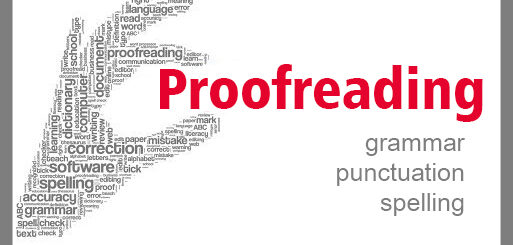Assignment Conclusion Help

In the Assignment Conclusion Help article, we will discuss pointers for writing a clear and organized discussion and closing section, and discuss what is and is not part of it. This handout explains the function of conclusions, provides strategies for drawing effective conclusions, helps you evaluate the conclusions you have drawn, and suggests approaches you should avoid. Introduction and conclusion can be difficult to write, but it is worth investing some time in them.
Your introduction acts as a bridge that brings the readers from their own lives to the place of analysis, while your conclusion is a bridge that helps them make the transition back to their daily lives. Conclusions help your readers to see your analysis as information that is important to them and that they can put on paper. In assignment help writing we believe that Your conclusion is your chance to make a good last impression and finish on a positive note. It allows you to have the last word on the topics you raised in your essay, to summarize your thoughts, demonstrate the importance of your ideas, and move your readers towards a new perspective on the topic. The task of writing an effective conclusion is to pave the way for you to achieve higher scores and higher audience esteem.
Learn to draw a laudable conclusion with the strategies you need to pay attention to. These strategies help you to strategize your thoughts in conjunction with the written requirements and bring you one step closer to your actual purpose of writing a conclusion. We have given our tips on writing scholarship essays, but you need also to know the purpose of the scholarship you are applying for and use it as a guide to writing a scholarship essay.
There are several ways to make the discussion part of your manuscript more effective, interesting, and relevant. If your discussion is a short answer to a question such as “What would my results mean if…” – a discussion part in a manuscript, then come up with a method to close the sections.
If you feel you have strayed from the original argument, acknowledge that the broader idea behind your essay writing is essential. This increases the importance of the argument and further demonstrates your extensive knowledge of the subject.
At the university level, you should be familiar with how to incorporate the introduction, body, and conclusion into your essay work. The last component is the extent to which the paper has a strong, logical conclusion. An argumentative essay should be complete and leave no doubt about its intent and reasoning.
One of the most important parts of the entire writing process is the final paragraph, which is difficult to put into words. The most common method of writing an argumentative essay is the five-paragraph approach. That sounds good, and that is because it is, but in fact it contains: (a) an introduction, (b) three conclusive paragraphs containing a discussion of opposing views, and (c) a conclusion.
In the final section, you summarize what you wrote in your essay. To help you write the conclusion of an argumentative essay, a small essay is still important. Rather than rewriting your view of the discussion, the aim of the conclusion is to reinforce your view of the issue.
When writing a good final section, you need to think about the most important points you want to convey and be sure that they are included. If you wrote a wonderful introductory paragraph, you can write something similar but with a different sentence structure.
Everyone knows that the most difficult part of an essay is the introduction and conclusion. Your introduction should give the reader an idea of who you are, and the conclusion should have a lasting effect. If your work is a long job, a good place to start is by looking at the paragraphs. Spend more time introducing and completing them to make sure they get the message you want. If a new point is mentioned in your conclusion, take it seriously and try to include it in one of the paragraphs of your essay.
As mentioned above, the conclusion should be short, succinct, and direct, beginning with the conclusion: “I am wrong. The phrase “summary of the conclusion” is superfluous and unnecessary, so avoid using it. You can combine these points with pictures and anecdotes from the introductory paragraph.
A short, succinct, and direct introduction to the final note is a fact that will help the reader to present the correct conclusion in your letter. Your conclusion is the second strongest statement in your essay, and the scholarship committee will remember that. The hope is that you read your essay and avoid summing it up with your conclusion.
Conclusions are one of the most important aspects of assignment help and paper because they provide clarity and insight into an issue. They can be used at any time when writing an essay, report, or article that suggests or examines an idea, topic, or event. In this article, we will explain how to write a conclusion, listing the different types of conclusions, giving details of what to include and what to avoid, giving an overview to use in your next essay, and provide examples of effective and ineffective conclusions paragraphs.
Argumentative essays are a genre of writing that requires students to examine a subject, collect, generate and evaluate evidence in order to establish a position on the subject in a concise manner. Argumental essays and expositional essays are similar but differ in that the latter involves a degree of prescribing invention, and research. A successful assignment help article has a strong finish, and the conclusion is one of the most powerful components of an article. Here are some of my favorite tips for a powerful conclusion to a blog post.
Many authors confuse the information they include in their discussion with the information they include in their conclusion. One of the easiest ways to avoid this is to look at your conclusion as a summary of what you have said.

Additional Readings:
https://owl.purdue.edu/owl/general_writing/academic_writing/essay_writing/argumentative_essays.html
https://blog.hubspot.com/marketing/writing-powerful-conclusions
https://www.oxbridgeessays.com/blog/focus-directive-essay-words-to-what-extent/
https://www.indeed.com/career-advice/career-development/how-to-write-a-conclusion
https://writingcenter.unc.edu/tips-and-tools/conclusions/
https://www.time4writing.com/writing-resources/writing-a-good-conclusion-paragraph/
https://www.enago.com/academy/discussion-conclusion-know-difference-drafting-manuscript/
https://www.scholarful.com/how-to-write-a-scholarship-essay/







